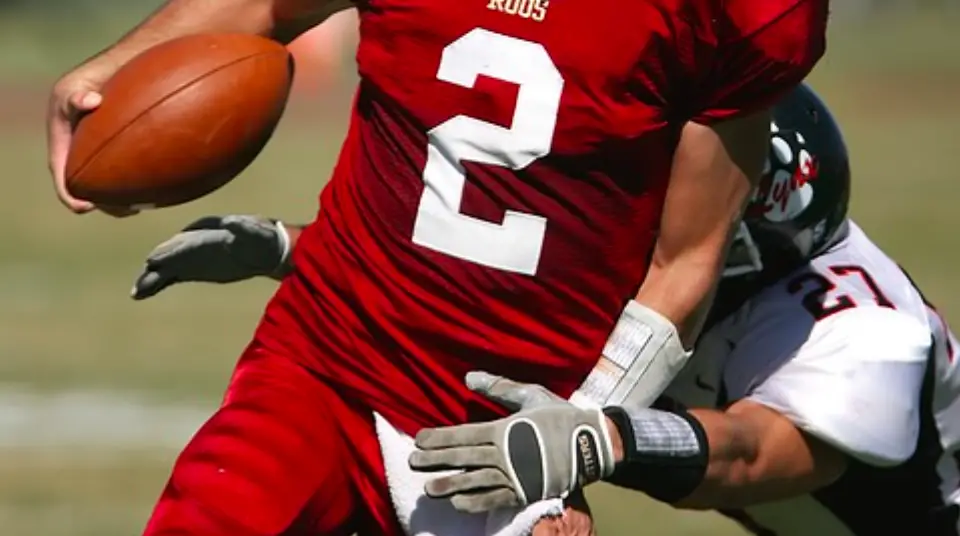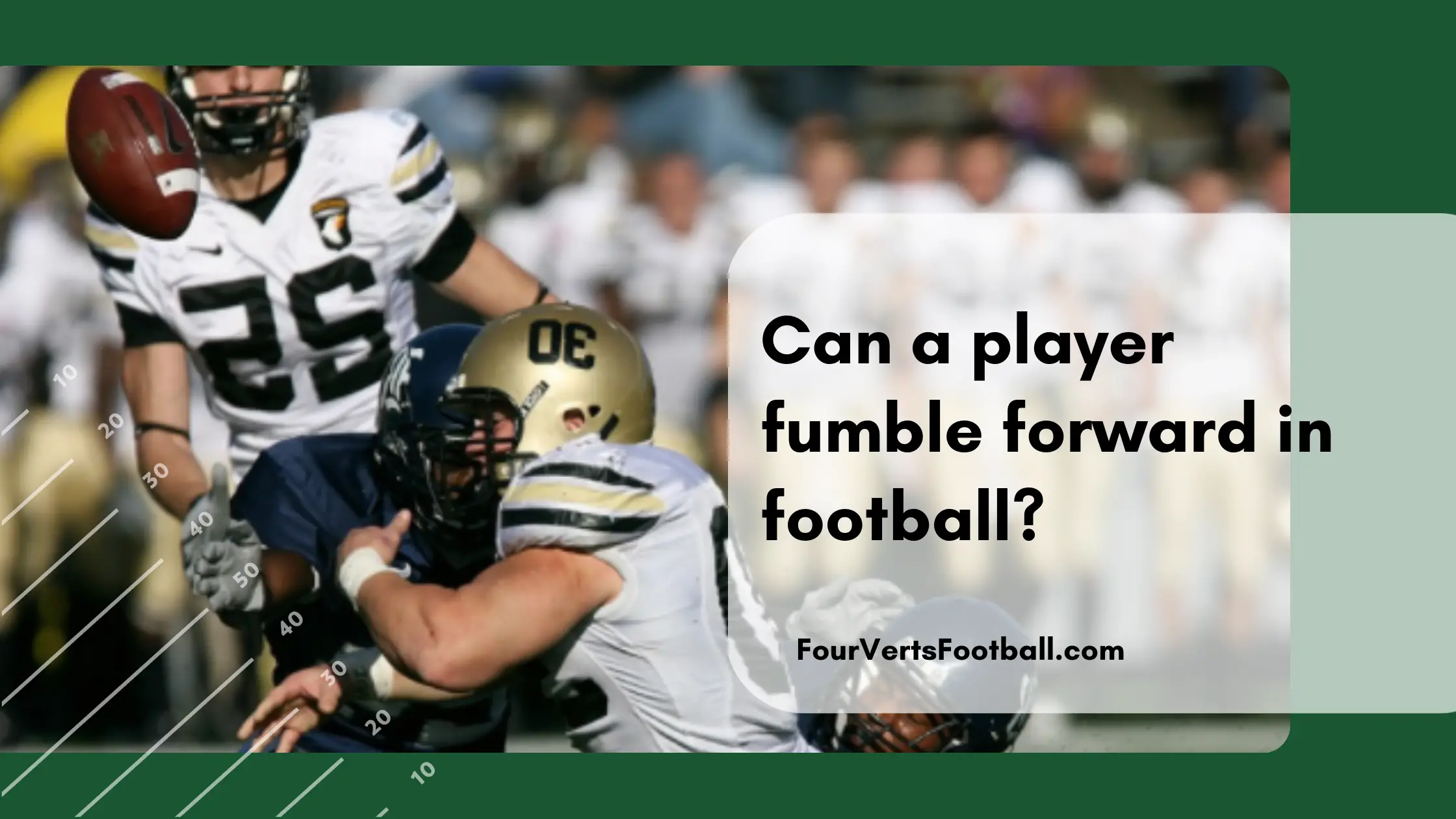Have you ever watched a player being tackled in a dire situation and wondered why he doesn’t just intentionally fumble the ball forward? After all when a touchdown is needed or a fourth-down attempt is failing what else do you have to lose?
Unfortunately, players are not allowed to intentionally fumble forwards in football and the NFL has put several rules in place to stop this from happening.
Intentional Fumble Rules
The first rule put in place in order to stop forward fumbles stated that an intentional forward fumble is considered a forward pass.
This means that an intentional forward fumble that hits the ground would be considered an incomplete pass. This would immediately have the play blown dead and result in a gain of no yards.
If the ball had already been passed forward an intentionally forward fumble would be considered an illegal forward pass. This is because you are only able to attempt a single forward pass per play.

Additionally, if a player fumbles forwards out of bounds the ball is not moved to that location. Instead, the location from which the player fumbled the ball is where the next play will start.
Technically if the ball had not been passed forward a player could fumble to his teammate who would have to catch the ball to keep the play alive. Though this scenario is quite unlikely and would look like a shovel pass rather than a forward fumble.
If a fumble is collected by the opposing team then this is referred to as a takeaway or a lost fumble.
The Holy Roller And It’s Consequences
We cannot write an article about forward fumbles without mentioning the Holy Roller. The Holy Roller is a famous play that took place in San Diego in 1978.
With ten seconds left in the game the Raiders needed a touchdown to win the game. Starting the play at the fourteen-yard line the raiders qb took a sack. Though just as he was hit he managed to fumble the ball forward.
The Raiders running back then “attempted” to pick up the ball and batted it seven yards closer towards the opposing teams end zone.
Then a Raiders Tight End also “attempting” to possess the ball knocked it even further forward into the Chargers end zone. The tight end then jumped on the ball for the touchdown.
At this time the only rule regarding forward fumbles was that they could not be intentional. Since the officials could not determine if the fumbles were intentional the play on the field stood.
The Raiders won the game and the Chargers went on to miss the playoffs by a single game.
Holy Roller Rule
The outcome of the Holy Roller game was met with much criticism as fans across the league did not agree with the official’s stance.
Since the officials couldn’t call whether the fumble was intentional the NFL added new rules regarding forward fumbles.
Due to this play there were two additional rules put in place. When a team is facing a fourth down only the player that fumbled the ball is able to advance it after the fumble.
Players on offense can recover the ball but the line of scrimmage will start from the location where the ball was fumbled.
Additionally in the final two minutes of each half, only the player who fumbled the ball is able to advance it forward.
Again the offense can recover the ball but they cannot advance its location. Though players can still recover the fumble and lose yards if they recover it behind the location it was fumbled.
As you can likely tell these rules are only put into place when a team may fumble intentionally. The final two minutes and fourth down conversions are moments in the game when the offense may have nothing to lose.
This is important because this is when an offense would attempt an intentional forward fumble akin to the Holy Roller.
Fumbles Vs Muffs
Another important factor to remember regarding intentional forward fumbles is that this does not include muffs. A fumble occurs when a player already has possession of a ball then loses it.
A muff on the other hand occurs when a player attempts to gain possession of the ball, touches it, yet does not gain possession.
This means if a player muffs a punt in the final two minutes it can still be progressed. This rule also stands for muffed/failed handoffs.

